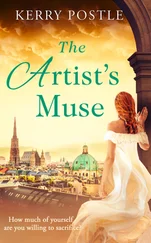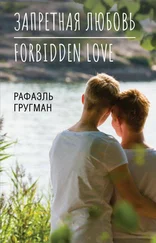Maria would too.
Whenever her father was out doing his rounds she would enter his study. Within seconds she would be stroking the flat images of the woman pictured next to him in the album, placing a finger on the delicate young woman’s papery cheek and dreaming of the past. When both her parents were alive.
She would then shuffle through the post, looking at the postmarks on the envelopes of any letters her father had received; ‘Madrid’, ‘Seville’, ‘Malaga’, ‘Granada’, ‘Cordoba’ . Each place name had the power to erect exciting new worlds in her mind. She had no need to see what was written inside to be transported there. Not that she had any qualms about reading her father’s letters. It was just that in the main their contents were always the same – disease and politics – and Maria was fed up with reading that people thought her father had the cure for both.
Shortly after Christmas 1935 the letters became more frequent, the postmarks more varied and far flung. An increasing number arrived from Madrid, followed by more still from Cadiz, and Barcelona. The words inside, when she chose to read them, were now feverish, about strikes and demonstrations. Yet they also brought with them a wild optimism for change that galloped off the sheets and into Maria’s heart on the occasions she picked them up.
But for all their unbridled promise, nothing and no one had yet come to wake up their sleepy little village.
Then, one day in early January 1936, Maria noticed an English postmark. As usual the sight of it was sufficient to fire her imagination. Here was another bridge, this time to England. She closed her eyes and conjured up a country that was cold, green, wet, where people drank tea. Those bits did sound horrid to her. But it was also home to Shakespeare, and George Eliot, and well-loved by Voltaire for its religious tolerance and freedom of speech (she had listened well to Seňor Suarez and her father over the years, though, strangely, never been tempted to follow up on their reading recommendations). When her imagination had no further details to draw on she read the letter. She wept with joy at its contents. Someone, an English someone called Richard Johnson, aged eighteen, from England, would soon be walking across that bridge to stay in Fuentes de Andalucía until October. Maria could not wait for his arrival.
She brushed up her English vocabulary, practised her English grammar, fell asleep reading Charles Dickens in translation one painful sentence at a time. Richard Johnson. She didn’t care what he might look like. He would be in her life very soon, providing a window on the big, wide, wonderful world.
The villagers of Fuentes thought the Alvaros an unusual family, and Fuentes was an unusual place for them to settle. People usually dreamt of moving to Madrid, and so when a finely dressed Madrileňo holding a plump, well-fed baby in one arm held out his hand one Monday morning way back in 1921 to help a frail-looking woman out of a carriage, most of them couldn’t believe their eyes. Sturdy trunks followed, full of books, bottles and medical instruments. By the end of the second day the finely dressed man had tended three babies with a fever, lanced twenty-seven boils, treated the infected wounds of seven farm labourers, and diagnosed nine cases of gout.
El doctor had arrived.
Within weeks he had become indispensable, caring for the infirm and curing the sick, usually with his robust-looking baby in tow.
‘Poor doctor! Poor child! What sort of a wife must that woman be to let her husband do so much? She never leaves the house!’ the women of Fuentes enjoyed muttering to each other, their eyes rolling in sisterly condemnation.
The answer came in the winter of 1923 when poor Seňora Alvaro left her home for good, in a coffin – thus putting an end to the muttering.
The response was rapid. All rallied round, some bringing him food, others looking after the poor motherless girl. It wasn’t their fault the woman had died. They weren’t doctors (they bit their tongues from running on to the inevitable conclusion their cruel thoughts had already jumped to). But they were mothers. And they would treat this Maria as one of their own. That she looked like she had sprung from the Andalucian soil made her easier to accept. She was strong and dark and not at all like the frail, colourless woman who had given birth to her (if, one or two of the more spiteful among them whispered, she really had).
And although many of the mothers in the village talked openly amongst themselves over the years that the doctor should show that daughter of his a firm hand, they too indulged the girl. Her growing spirit and fearlessness were a joy to behold. Most of the time.
As for the men, they acknowledged the doctor’s loss at the funeral. They never gave it much thought after that. Pablo Alvaro was their doctor, first and foremost. They had no time to contemplate his suffering. Not when they had to endure so much of their own. The moment they stepped outside the church was the moment they put him back on his pedestal. Oh, they would have the odd drink with him, careful to be on their best behaviour when he was around, but they would never break bread with him. It wasn’t because they didn’t like him – they did. It was because they didn’t understand him. He was good, well-meaning, but he came from a different world. They consoled themselves as the years went by that he had Seňor Suarez, the teacher, and Father Anselmo, the priest, for company, thereby relinquishing themselves of all feelings of guilt and responsibility. To the villagers’ ears these three pillars of Fuentes society may as well have spoken a different language for all the sense they made.
Occasionally people would pass through the village on their way to or from the big cities. And, once or twice, an elderly couple had turned up asking, so the rumour mill had it, after the poor doctor and his girl. But, in truth, very little changed in Fuentes. And that included the people.
That was why, when Richard Johnson arrived in the spring of 1936, fifteen years after the last significant addition to the population, the entire village took a sharp intake of breath. Here was a true stranger, who really did speak an alien language. His presence had the power to clear streets. And so, for the first few weeks of his stay at least, the English boy found the usually pleasantly busy streets of Fuentes absolutely dead.
Yet what repelled the villagers about the English boy was precisely what attracted Maria.
He’d been in the village for less than a month when she told herself she loved him. It was ten o’clock in the morning, a sunny day in late spring 1936, and Richard Johnson had made his way along empty streets to discuss possible work with her father.
Doctor Alvaro had found him a room a few streets away with a family that could do with the extra pesetas. The kindly doctor had thought it would be good to throw the boy in at the deep end by housing him in the heart of the community. Unfortunately, the impact of the splash ensured that no villager would come within striking, spitting or speaking distance of him, not even the family with whom he was staying. It didn’t matter. Alvaro took the boy under his wing: oversaw his progress; invited him round for food; discussed politics, history, family; monitored his health; checked on his happiness. If the rest of the village ebbed away from him, Richard was past noticing. The doctor’s care and concern flowed towards him, warm and comforting, its gentle waves lapping all around. The boy’s father could not have done more, and, in truth, had often done very much less.
That’s why Richard Johnson was melting his way along the already hot streets, a book slipping from a sweaty palm, towards Doctor Alvaro’s, determined to show his appreciation for everything the good man had done. He’d asked before. In fact, he’d asked quite a few times. But the doctor had always been too polite to take him up on his offer. Well, the boy was determined to ask again. He would offer his services to help out the doctor in any way he could (as long as – he made a note of adding as the perspiration dripped off the tip of his nose and sucked the shirt to his back – it was before ten in the morning and after five in the afternoon). Truly. In any way. Though how he could be of help to a medical practitioner when he had nothing more than a rudimentary knowledge of basic human biology (never mind the Spanish vocabulary to go with it), the eighteen-year-old wasn’t really sure.
Читать дальше












